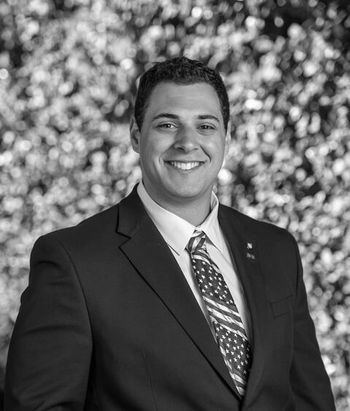Should Christian colleges ban porn on campus? These students think so.
University of Notre Dame senior W. Joseph DeReuil and Campus Reform correspondent Emily Fowler called on their Christian universities to ban porn on campus wi-fi.
Rather than comply with age verification laws in several states, porn sites like PornHub are ceasing operations in such areas.
In recent months, conservative state legislators have been on a crusade against pornographic websites.
Since 2022, seven states have passed laws requiring porn sites to verify that a user is actually 18 years old before being able to use them. In response, Pornhub, the largest adult website in the United States, entirely ceased operating in three states: Virginia, Utah, and Mississippi.
[RELATED: EXCLUSIVE: WSU promotes porn-filled Discord server in mailing list]
The news prompted one college student to call for change. W. Joseph DeReuil, a senior at the University of Notre Dame, called on the Catholic university to filter pornography sites out of the school wi-fi system.
“[Pornhub] pulls out of multiple states after legislation passes unanimously amongst both parties— time for @NotreDame to *finally* add a wi-fi filter?” DeReuil tweeted in August. “This isn’t a partisan issue. It’s common sense.”
DeReuil explained the reasoning behind his call to action and the importance of stopping the proliferation of porn in Catholic schools in an interview with Campus Reform.
“Pornography should be banned because it harms those individuals trapped in the industry, the user/watcher, and those who are in close relationship with the user,” he said. “It is already against university policy to use pornography on campus wi-fi and devices, but nothing is done to enforce this policy. Earlier arguments used to enact a pornography filter on campus wi-fi often relied on Catholic teaching prohibiting pornography use—which Notre Dame has all rights to base their policy on as a Catholic school—but the need for a filter has become even more apparent as the culture at large has starting realizing the negative societal and personal effects of pornography usage. So I am hopeful that progress can finally be made in this area.”
DeReuil explained that while Notre Dame’s wi-fi filter blocks certain websites to prevent phishing, spam, and malware, pornographic sites are not blocked, despite the fact that adding porn sites to the filter would be straightforward. And while an age-verification law was discussed in the state legislature, Indiana does not have an age-verification law. Notre Dame students previously pushed the university to block porn on the wi-fi in 2018. Other Catholic colleges, including Holy Cross College and the Catholic University of America have already banned porn on their servers.
Several small student-led groups on campus exist to help students combat porn addiction. A wi-fi filter would lend institutional support to those support groups. It would also add another layer of defense against porn addiction.
““I believe banning pornography use on campus—or creating an enforcement mechanism for bans already in place such as at Notre Dame—is a simple and straight forward policy that especially Catholic universities should see the benefit of and should act upon,” said DeReuil.
Banning porn on campus is not an issue solely reserved for Catholic schools. Campus Reform senior correspondent Emily Fowler, who attends the non-denominational Christian school, The Master’s University, echoed DeReuil’s sentiments about porn on campus.
“I think that all Christian colleges should remove access to [porn sites],” said Fowler, noting that her school has a website filter that blocks pornography and pirating websites. “Christian colleges exist to provide students with a Christ-centered education experience, with the ultimate goal of helping students grow in their walk with Christ so that they can graduate mentally and spiritually prepared to give glory to God in a fallen world. It seems ludicrous for Christian colleges to encourage spiritual values such as chapel attendance but give students open access to pornography.”
[RELATED: Prof argues ‘enjoyment of’ CGI child porn should ‘almost certainly be made legal’]
Both DeReuil and Fowler agreed that banning porn would benefit their campuses and society as a whole.
“PornHub pulling out of various states in response to Age-Verification laws is a huge pro-human victory,” said DeReuil. “I hope that growing recognition of the evils of Pornography will help our culture more broadly recognize the value of healthy relationships.”
“Pornography is an addiction, and though limiting access will not keep students from viewing it altogether, it might keep students from initial exposure which would later lead to addiction,” said Fowler. “The same thing applies on the state level. As a result, I think that marriages would benefit, and unmarried people would have a healthier and more realistic view of sexual intimacy, which will help them flourish in their future marriages.”

